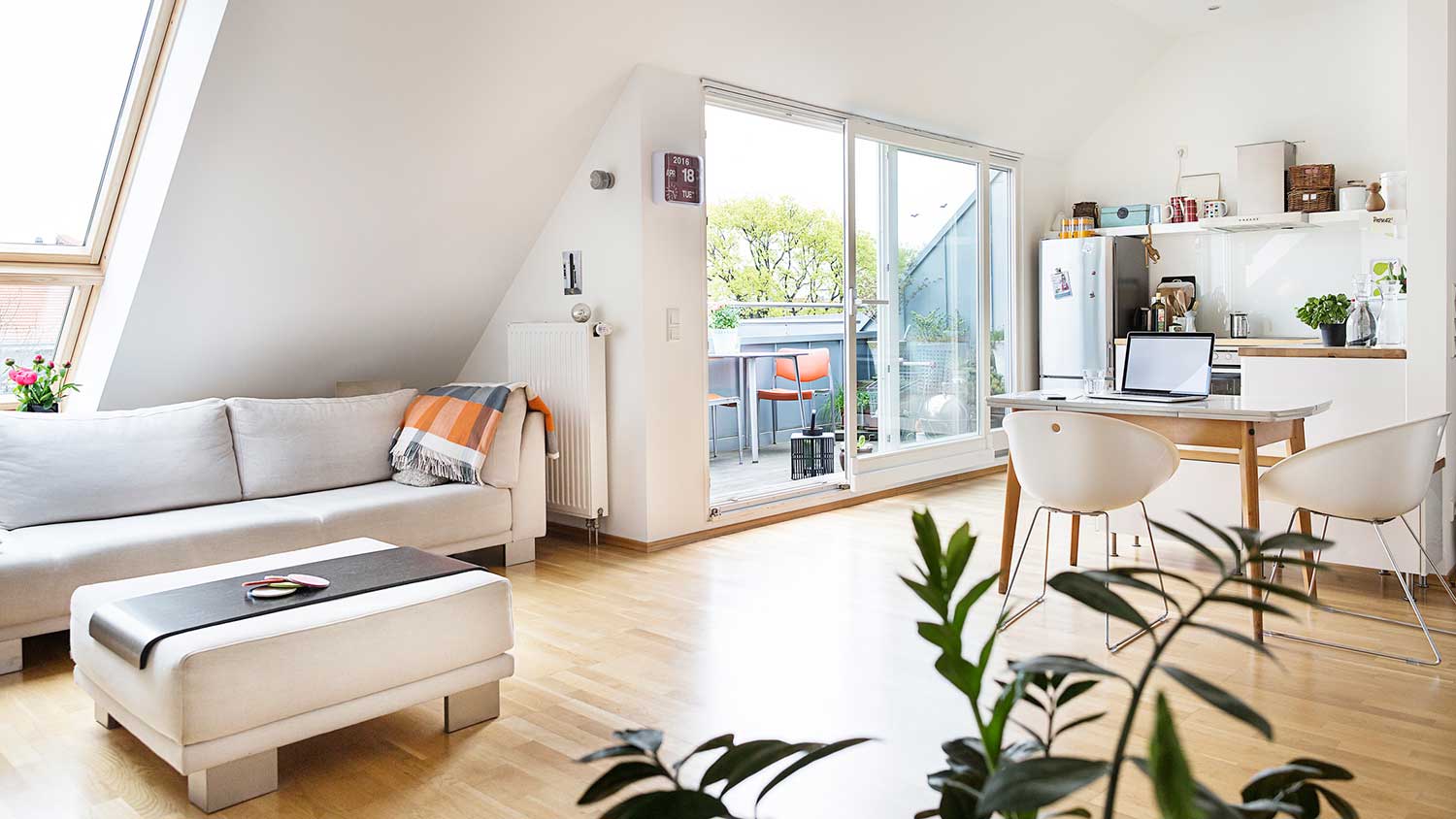What Is a Short-Term Lease? The Pros and Cons
Is getting a short-term lease selling yourself short?


Short-term leases usually last six months or less.
This type of lease typically renews on a month-to-month basis.
These rentals allow for more flexibility, but less stability than long-term rentals.
Maybe you’ve got a gap between when you move out of your home and when you can move into your new home. Or maybe you’re new to a city and need somewhere to stay for a while before you buy a home or sign a full lease.
If that’s the case, you may be in the market for a short-term lease. Here’s everything you need to know about the pros and cons of short-term leases.
What Is a Short-Term Lease?
A lease is considered short term if its duration is for six months or less. These types of agreements are great if you’re looking for short-term housing options, and the leases are usually month-to-month contracts.
The Pros of a Short-Term Lease
Aside from the temporary nature of short-term leases, other benefits come with choosing this type of lease.
Flexibility
A major reason why some tenants choose to move into a short-term lease is flexibility. You have somewhere to stay when you need it in the short run, and you don’t have to worry about breaking a lease agreement if you want to vacate. If you’re new to a city or want to explore different neighborhoods, a short-term lease is a convenient way to get to know the area before renting an apartment with a long-term contract.
Quick Move In and Out
Since most short-term leases operate on month-to-month contracts, meaning that the lease renews itself every month, you have the flexibility to move in and out quickly if you find something more long term. However, that doesn’t mean you can leave your landlord high and dry. Your lease agreement will specify when you must give your move-out notice, and it’s usually at least 30 days in advance.
Amenities

With the quick turnaround on most short-term leases, there isn’t time to switch utilities in and out of tenants’ names, so many short-term properties require you to rent with utilities included. Short-term rental properties are also likely to be fully furnished because of the brief nature of the tenant stays. It’s easier for the rental management to keep furniture in the apartment than having someone move furniture in and out every few months.
The Cons of a Short-Term Lease
While signing a short-term lease has many benefits, there are also drawbacks to getting into this type of rental situation.
Less Stability
When you’re on a month-to-month contract, you don’t have the same kind of housing stability that you would with a long-term lease. The landlord or rental management company can decide at any time not to renew the lease, which means you’re back to looking for another apartment or house.
Negative Credit Impact
Moving frequently from short-term lease to short-term lease can make a negative impact on your credit score and history because it can make you appear unstable to lenders. If your landlord conducts a hard pull on your credit report every time you renew the lease, this frequent action can cause your credit score to drop.
Lower Availability
Landlords generally prefer to lease their properties long-term, at least in 12-month increments, because it gives them more stability with rental income. That means that there’s usually a lower inventory of short-term leases on the market at any given time.
Higher or Fluctuating Rent
Your landlord has the option of changing the rent rate any time the lease renews. If you renew your lease on a monthly basis, your landlord could decide to raise the rent from one month to the next. Short-term rentals usually cost more than long-term rentals to begin with because there are higher costs associated with turning the unit over every time a tenant moves out.
How to Find a Short-Term Lease
There are plenty of ways to find a short-term rental. There are some rental websites specifically for these types of leases, while other rental management websites have a section dedicated to short-term situations.
Asking your family and friends is also a good way to go—you never know who might have a rental property they’d like to fill in the short run. If you’re moving for work, you can ask your employer about short-term housing. They might have recommendations that they’ve used for other employees or may at least be able to point you in the right direction.















